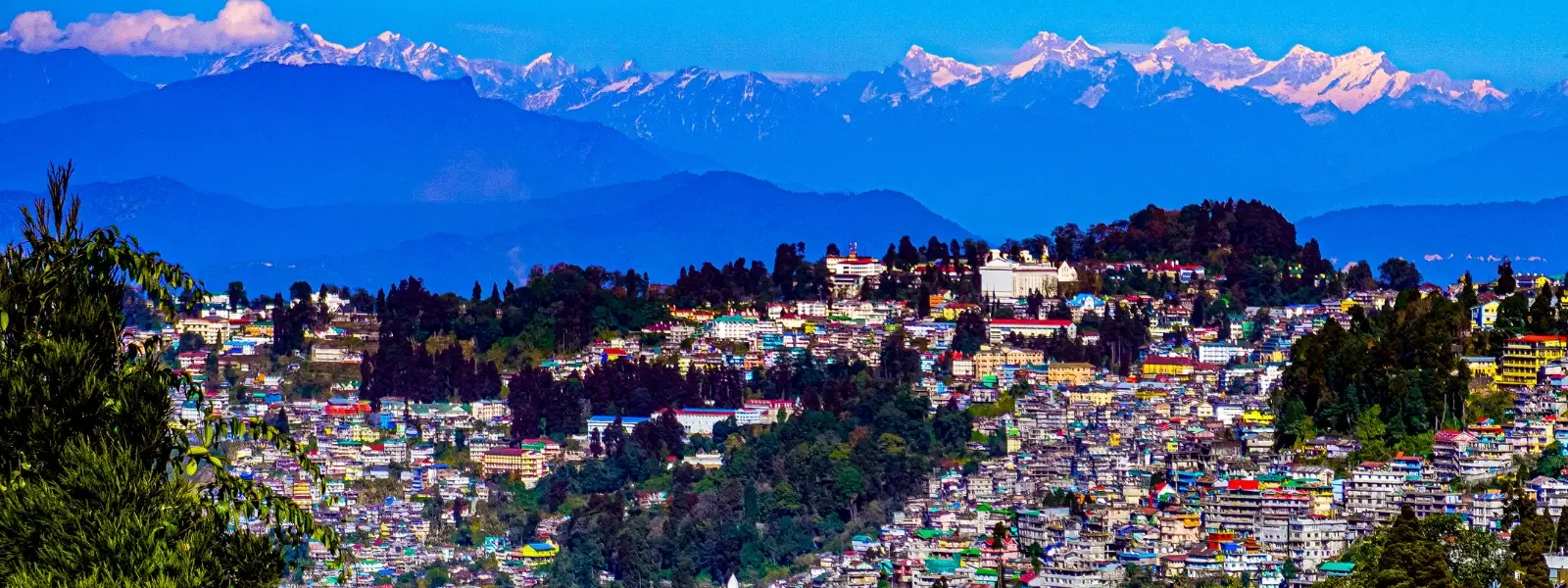
Hotels
•04 min read

Imagine traversing winding mountain roads, where serene landscapes unfold and charming villages whisper tales of ancient traditions and natural beauty. The high altitude villages on mountain passes offer a unique blend of culture and nature, far removed from the busy routes of mainstream tourism. In this blog, you'll discover how to explore these hidden gems like a local, immerse yourself in remote mountain communities, and experience life in traditional mountain villages with ease.
Mountain pass villages are small settlements nestled in the rugged terrains of high altitude regions. They act as gateways to remote mountain communities and scenic mountain settlements. These villages often lie on the edges of mountain passes, connecting isolated regions while preserving unique cultural traditions and historical routes. Their geographical significance lies not only in their location but also in their role as custodians of age-old traditions and practices.
Exploring villages on mountain passes opens a window into a world steeped in culture and history. Unlike popular tourist spots, these high altitude villages offer a genuine and immersive experience. You will witness traditional lifestyles, interact with friendly locals, and enjoy breathtaking landscapes that change with every turn. The experience is both enriching and soul-stirring, providing a deeper connection to nature and heritage.
India is home to several celebrated mountain pass villages that boast historical and cultural significance. Villages near passes such as Shipki La, Khardung La, and Sela Pass have long served as important transit points and cultural melting pots. These spots are renowned not just for their dramatic vistas, but also for their unforgettable stories, ancient traditions, and the resilient spirit of their inhabitants.
Before embarking on your journey to explore mountain pass villages, thorough research is essential. Use detailed maps, travel blogs, and connect with local guides to identify hidden villages in mountains. Understanding the terrain and weather conditions is crucial as alpine regions can be unpredictable. Equip yourself with accurate weather forecasts, local insights, and the best travel routes to ensure a smooth adventure.
When exploring remote mountain communities, packing the right gear can make all the difference. Ensure you have clothing suited for high altitudes, robust navigation tools, and sustainable travel gear that minimizes environmental impact. Consider items like a waterproof jacket, sturdy hiking boots, a first aid kit, and reliable maps. Being well-prepared for sudden weather changes is key to enjoying your journey safely.

Interacting with the residents of traditional mountain villages requires sensitivity and respect. Learn a few simple phrases in the local language to break the ice and show appreciation for their culture. Familiarize yourself with customary practices and etiquette. This respectful approach not only enriches your experience but also fosters meaningful connections with the locals, making your adventure more authentic.
The true allure of mountain pass tourism lies in the discovery of hidden villages away from the crowded paths. Engage with local residents, ask for recommendations, and use community-based tourism platforms to uncover secret spots that are seldom featured in guidebooks. This local knowledge often reveals breathtaking sites and intimate experiences that you won’t find in a typical tourist itinerary.
Participating in daily activities as the locals do enriches the travel experience. Whether it’s joining in family farming activities, learning to cook traditional meals, or participating in colorful local festivals, these experiences provide a window into life in mountain villages. Staying in homestays can also offer an insider’s perspective, allowing you to experience the rhythms and customs of remote mountain settlements firsthand.
Your visit can make a positive impact on remote mountain communities. By purchasing handmade crafts, local food items, and other artisanal goods, you contribute directly to the local economy. Responsible tourism encourages sustainable living and fosters preservation of these cultural treasures for future generations.
Traveling to high altitude villages requires some physical preparedness. Make sure you allow time for acclimatization to avoid altitude sickness. Stay hydrated, take it slow when ascending, and be aware of the signs of altitude-related discomfort. Although the limited connectivity can be a challenge, it also offers a refreshing escape from the digital world.
As you explore the pristine environment of mountainous regions, it is important to leave as little impact as possible. Follow sustainable travel practices such as packing out all your trash and sticking to marked pathways to protect local wildlife and landscapes. Remember that the beauty of traditional mountain villages depends on our joint effort to preserve nature.

Safety is paramount on any trekking expedition. Hiring experienced local guides and sticking to established trails can help you navigate safely through rough terrains. Always inform someone about your travel plan and carry essential gear for emergencies. Being prepared for unexpected situations ensures that your adventure remains delightful and safe.
Did you know that many hidden villages in mountains are accessible only through local knowledge? Strike up a conversation with a shopkeeper or guide—they often know the best-kept secrets of their region.
There are over 100 mountain passes in India, spanning the Himalayas, Western Ghats, and other ranges.
The Shipki La Pass, located in Himachal Pradesh, is considered one of the oldest and historically significant mountain passes in India.
Ladakh is renowned for its high mountain passes, including Khardung La and Chang La, which attract adventure seekers and nature lovers alike.
Famous villages include Chitkul near the Sangla Valley, Tawang near Sela Pass, and Nako near Shipki La.
Hidden villages can often be found through local recommendations, trekking routes, and community-based tourism platforms.
Exploring villages on mountain passes offers an unparalleled opportunity to immerse yourself in the beauty, culture, and traditions of remote mountain communities. By thoroughly preparing for your journey, respecting local customs, and embracing sustainable travel practices, you can appreciate the authentic life in high altitude villages like a true local. Let the allure of traditional mountain villages inspire your next adventure.